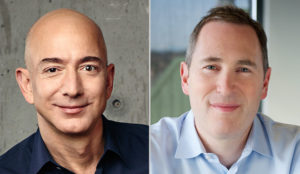An attendee at a two-hour question-and-answer session during a Facebook company meeting held in July leaked a recording of founder and CEO Mark Zuckerberg’s comments that reveal deep insights into his thinking.
Zuckerberg apparently decided the Q&A format would be an effective way to rally Facebook employees against rising criticism from competitors and the U.S. government. Some of his comments suggest his goal was to mount an adamant defense of his positions on the privacy and advertising issues confronting the company.
Several of his remarks have fueled controversy. For example, Zuckerberg promised a major court battle if Democratic presidential candidate Elizabeth Warren should be elected. Warren has urged government action to break up Facebook and impose sharp oversight on its activities.
Zuckerberg’s two-hour conversation with employees was leaked to The Verge.
The leaked audio reveals a man who is trying to put a confident and positive spin on the company’s prospects in the face of negative press coverage, lawsuits, government fines and investigations, and consumer concerns, observed Donata Kalnenaite, president of Termageddon.
“However, some of the comments that he made are quite unrealistic and a bit overconfident,” she told the E-Commerce Times.
Fighting Words
Zuckerberg was emphatic that his company would prevail in any legal battle with the government. Facebook likely would have no choice but to sue the U.S. government to stave off being broken up if Warren should become president, he said.
“If she gets elected president, then I would bet that we will have a legal challenge, and I would bet that we will win the legal challenge,” Zuckerberg said in response to an employee’s question.
Such a lawsuit “would suck,” he added, but he seemed very confident that Facebook would win it easily.
The truth is that while many have qualms about the Federal Trade Commission, their enforcement actions reflect the view of the public and consumers at least somewhat, noted Kalnenaite.
“The fact that this type of a lawsuit ‘would suck’ and nothing more for Facebook shows that the enforcement actions and penalties levied against Facebook have been insufficient,” she said.
Antitrust action has caused many leaders of large companies to shake in their boots for more than a hundred years. Zuckerberg’s nonchalance about such actions suggests that he believes his company and himself to be above the law, Kalnenaite said.
No Complete Win
The potential litigation could be long and costly, with an impact on Facebook’s bottom line.
“While dissolution is unlikely, government oversight would benefit users in terms of their data, protecting it better or with more transparency regarding its use,” said Shayne Sherman, CEO of TechLoris.
Advertisers would be impacted as well, he told the E-Commerce Times. Changes to how user data is permitted in Facebook advertising could reduce its effectiveness.
“Advertising is their primary source of income, so legal proceedings could result in negative impacts for both Facebook and their advertisers,” Sherman explained.
Facebook’s size has helped it fight election interference, Zuckerberg said, while noting that rival Twitter has been inadequate at fighting interference because of fewer resources.
“It’s why Twitter can’t do as good of a job as we can,” Zuckerberg said.
“I mean, they face, qualitatively, the same types of issues, but they can’t put in the investment. Our investment on safety is bigger than the whole revenue of their company,” he boasted.
No Thanks on Testifying
Zuckerberg was adamant about continuing to refuse to participate in hearings about Facebook’s behavior. His response was clear: He will not go to every single hearing around the world.
A lot of people want him to do that, he said. He did jump in when issues came up surrounding the Cambridge Analytica debacle, attending hearings in the U.S. and in the EU.
“It just doesn’t really make sense for me to go to hearings in every single country that wants to have me show up — and, frankly, doesn’t have jurisdiction to demand that,” Zuckerberg said.
Criticism ‘Overblown’
Some criticisms of the world’s biggest tech companies may be justified, Zuckerberg admitted, noting that people rightfully have concerns about whether the companies are being regulated appropriately.
“That’s a lot of the social discussion that’s going on, and there’s a lot of merit to that discussion — and we need to engage in it humbly,” he said.
One area that Zuckerberg highlighted was criticism of Facebook’s treatment of content moderators, which he termed overdramatic. Those criticisms included allegations of underpayment and poor working conditions.
“I’ve always focused more on the substance and trying to deliver things, and a little bit less on the perception,” said Zuckerberg, “and I think we don’t have that luxury anymore.”
The company early on got more glowing press than it deserved. So did other tech companies, he noted. “And then I think a lot changed in the last few years, and especially since the 2016 elections. And people are just more aware of a lot of these issues, and the pendulum in terms of perception is swinging, or has swung, towards focusing more on issues.”
Not Quite Accurate
Calling the focus on Facebook’s employee issues “overdramatic” was quite insensitive, said Kalnenaite.
“It is clear that the audio of this meeting was not supposed to be made public, as Mr. Zuckerberg presents quite a different face to the media when it comes to moderators,” she said.
The Facebook chief expressed the view that both the company and he would be targets of criticism no matter what they did.
That attitude shows a bit of giving up on the company’s image, Kalnenaite added. It is unlikely that anyone would criticize Facebook for keeping personal information safe or for not being subject to data breaches.
“To me, it appears as if he has accepted the negative image of himself and his company and is now just shrugging his arms and saying, ‘well, whatever. There’s nothing we can do anyways.’ I personally do not think that this is a good attitude to have,” Kalnenaite said.
Employees as Brand Ambassadors
Employees know the heart of the company, so they can share with outside critics a sense of what Facebook cares about and what its workers think about on a day-to-day basis, Zuckerberg told attendees at the meeting.
“And in the conversations that I have, even with some of our biggest critics, I just find that sitting down and talking to people and having them know that you care about the problems and acknowledge that there are issues and that you’re working through them … I think it just makes a big difference,” he said.
It seems Zuckerberg was attempting to boost company morale in light of a recent “techlash” coming from both political parties, suggested Ashley N. Baker, director of public policy for The Committee for Justice.
The company suffered a massive defeat after months of negotiations with a politically motivated FTC, she said. Further, the 2020 Democratic presidential candidates have been leveraging the outrage over “big tech” in their campaigns.
These are not nuanced legal or policy arguments. Still, Zuckerberg made an important point about the rule of law, Baker noted.
“Antitrust law is not a tool to use against companies we don’t like, and that seems to be one of Zuckerberg’s key points,” she said. “One of the major differences between U.S. antitrust law and that of the EU is that it is based on the notion of consumer harm. Our laws have ultimately benefited consumers. There is a reason there are no big tech companies in Europe.”
Retaining Absolute Control
One of the things Zuckerberg considers fortunate in Facebook’s evolution is that he managed to retain voting control over the company. Without that, he probably would be gone already, he told his employees.
“That’s something I focused on early on. And it was important because, without that, there were several points where I would’ve been fired,” he quipped.
That voting control allows him to focus on social issues that he really cares about. One of them is making sure that Facebook’s products promote positive well-being, he said.
“We did a lot of research on well-being. What the research concluded was that there were basically two major uses of the Internet. There’s a big distinction between when you’re connecting with people and interacting with people and when you’re just passively consuming content,” Zuckerberg pointed out.
Two Takeaways
Advertisers should not worry about significant changes in the way Facebook utilizes the platforms, according to Baker.
Congress’ influence over changes to content moderation policies, and antitrust concerns affecting other companies in the digital advertising market, are far more relevant than threats coming from the likes of Elizabeth Warren, she said.
“After all, she once promised to break up big banks, too, Baker recalled.
The general public does not understand how sophisticated the back end of the advertising process is on Facebook, said Tom Young, managing partner at Rumjog Enterprises.
“People do not realize that there are eyeballs on them, and they are being manipulated in ways that are far too subtle for them even remotely to identify,” he told the E-Commerce Times.
For example, Facebook offers advertisers multiple ways to hyper-target audiences without them really knowing, based on a wide array of data points. This form of hyper-targeting leads to having private companies that can manipulate outcomes and even commerce at some level, Young said.
“Some would argue that the advertising industry has historically done that, but it has been transparent to a degree. Most of the time, people knew that they were being advertised to, and it was very much apparent through the use of TV and radio advertisements,” he noted.
Breakup Worries Real
The increasing calls for regulatory agencies to reduce the size and scale of Facebook’s operation might well be a valid concern for Zuckerberg. Facebook is committed to keeping everything under one roof, according to Marty Puranik, CEO of Atlantic.Net.
“In fact, the understanding is they are working to intertwine Facebook/WhatsApp/Instagram so that it would be impossible to break them up,” he told the E-Commerce Times.
Facebook members need to understand they are not the customer — the advertisers are. Advertisers need to understand that Facebook wants to maximize the monetization they can get from them, Puranik explained.
“The general public should be very concerned, as we have seen the effects of fake news,” he cautioned. “And the purveyors of this are getting more and more sophisticated with things like deepfakes. If society at large does not get ahead of this problem, it will be a real problem for democracy at large.”


























































Social Media
See all Social Media